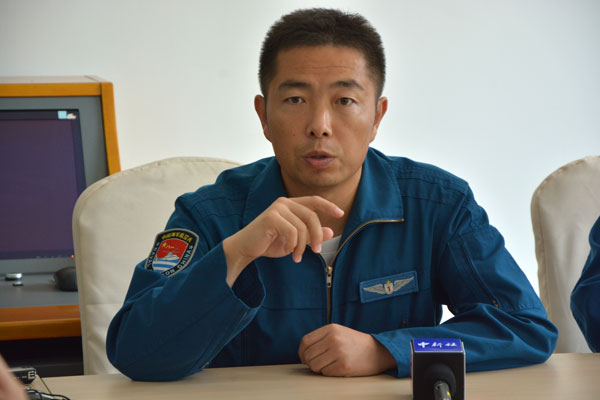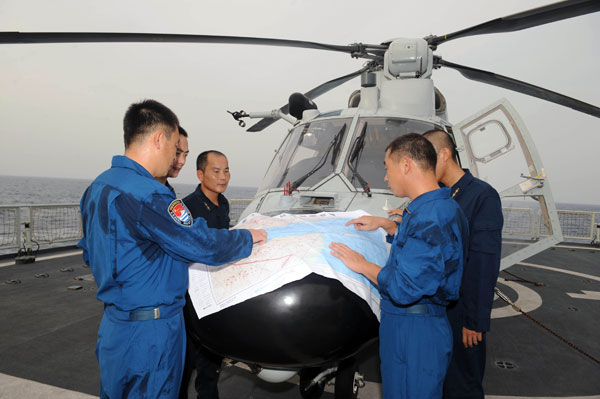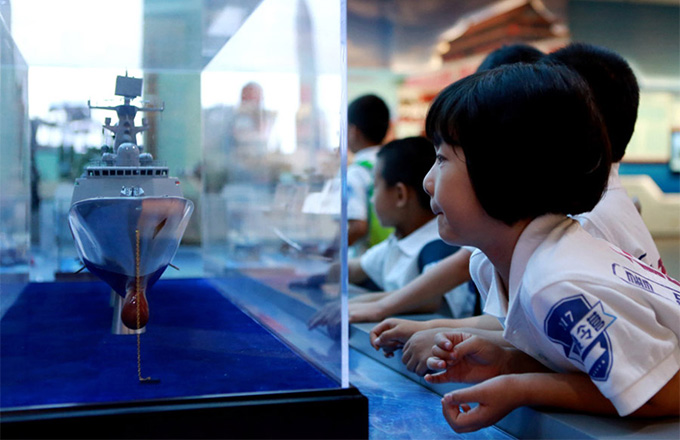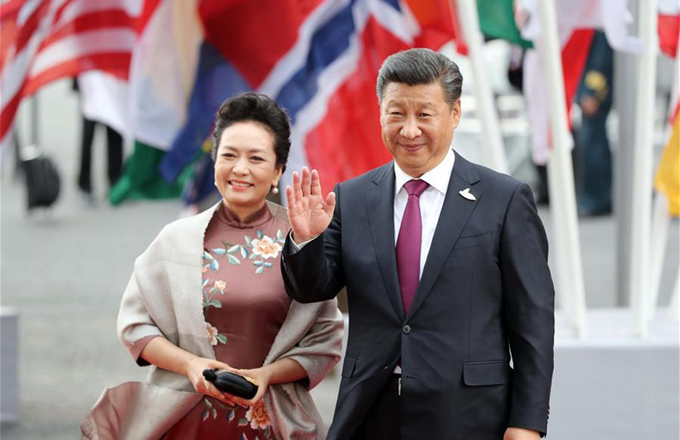Naval pilots: Fight for country and people
 |
|
Helicopter pilot Cheng Wengang has plenty of good stories to tell his son. [Photo by Liu Jing/chinadaily.com.cn] |
"To live an ordinary life is great. The only thing is you won't have so many stories to tell your children," Cheng says.
Cheng is a helicopter pilot in the aviation independent regiment from the North Sea Fleet.
Joining the navy in 1997, he has participated in many important missions including international military drills and escorting shipping vessels in waters where piracy prevails.
One memorable experience recalled by Cheng happened in 2013 when he successfully picked up 26 sailors that had been kidnapped by pirates in Somalia and held for 570 days.
"I could see them standing on the beach from the cockpit. They were really skinny, many were topless and in bare feet."
The wind was too strong and the beach too soft for the helicopter to land, but he knew that he must make a quick decision because the longer the hostages stayed on the beach, the more likely they would fall prey to other pirates. Plus the operation would be even more difficult as it got darker.
Suddenly, Cheng noticed that the tide had ebbed, leaving a narrow wet and hardened area on the beach. Maybe the helicopter could land there. The information was passed on to his superior and Cheng soon got permission.
Luckily, the plan worked. Thanks to his calmness and rich experience, he managed to land on the beach and picked up the sailors in batches. Thirteen were from the Chinese mainland, one was from Taiwan and 12 were from Vietnam.
The hostages were sent to a nearby Chinese frigate where they received food and a health check.
"Two sailors from Vietnam said, 'Thank you, Chinese navy' again and again in Chinese," Cheng said.
What Cheng described is just one accomplishment of the regiment during its 15 escort missions in the Gulf of Aden.
Since 2008, the PLA navy has been dispatching forces to the Gulf of Arden with the authorization of the United Nations, in order to protect passing shipping vessels from rampant pirates.
 |
|
Pilots discuss tactics during a break. [Photo provided to chinadaily.com.cn] |
A harsh environment and mechanical failure are not the only challenges soldiers encounter. For example, an escorting mission takes, on average, more than eight months. The ship docks every three or four weeks which means the soldiers have to spend about a month onboard before setting foot on land.
Most fresh vegetables will long be rotten after such a long period. During the first week after setting sail, those onboard can still enjoy various vegetables. But after that, only a few kinds of vegetables such as potatoes and onions are still available. In the last days of the mission, they will be left with only frozen meat and canned food. The vegetables ordinary people take for granted become a true luxury.
"Sometimes I feel very hungry but when I step into the canteen and see the food there, I will feel sick," said Zhang Keyan, another helicopter pilot from the regiment. During one mission, Zhang said he ate only chicken legs and rice for about a week.
Cheng said it was very normal for the pilots to lose weight during a mission.
On the other hand, they also find it a headache killing time. Due to machine radiation and abnormal living conditions, soldiers often suffer from serious insomnia which means the soldiers are awake a lot of the time.
"It is so boring that one time we got up at four or five o'clock in the morning for one month just to see the sunrise," Zhang said, adding that the appearance of sea gulls and dolphins often draws a surprising amount of attention from bored soldiers.
"When I was younger, I thought that joining such a mission is contributing to the country and is glorious. Therefore, I wished more opportunities like this," Cheng recalled.
"Now I have a family and hope to take better care of my wife and son. But I'm a soldier and I have to obey the orders and put the interest of country above myself."
"Sometimes I feel afraid when thinking of wars. Everyone is afraid of death," Cheng said. "However, I am a soldier, it's my duty to fight for my country and people. "
"The process is really hard. But when you've made it, you will feel fulfilled and have a lot to remember in your life," he said.
- Premier Li: China ready to enhance cooperation with WHO on medical reforms
- Soldiers prepare to do battle in the sports arena
- Upcoming 19th National Congress of CPC a key meeting at a crucial time: Xi
- PLA 90th anniversary exhibition inspires young and old
- Sales start as Beijing Zoo market prepares to shut down



























